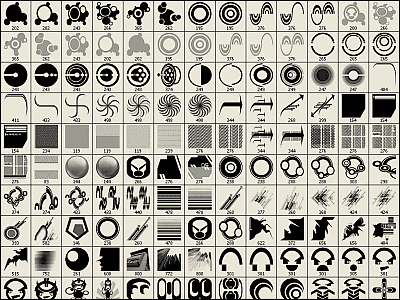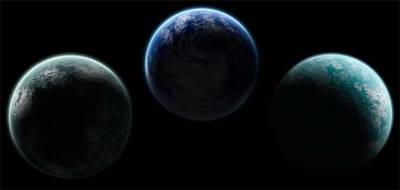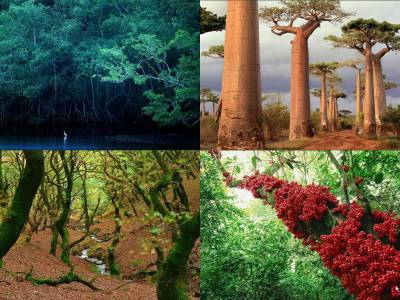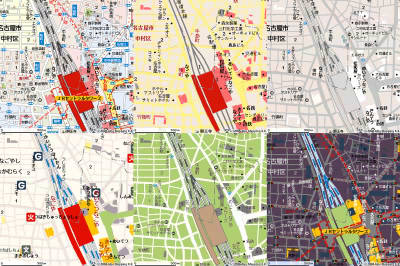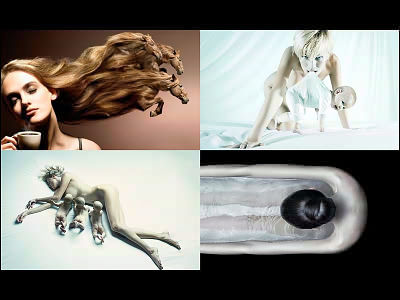``Fantasy Map Brushes'' allows you to download brushes for creating fantasy maps that can be used for free and commercially.

Adobe Photoshop
Fantasy Map Brushes – KM Alexander
https://kmalexander.com/free-stuff/fantasy-map-brushes/
To use a brush, first click on the brush you want to use from Fantasy Map Brushes.
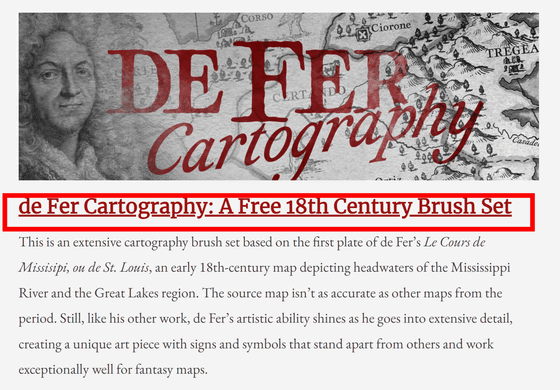
Click the 'DOWNLOAD' button on the brush page.
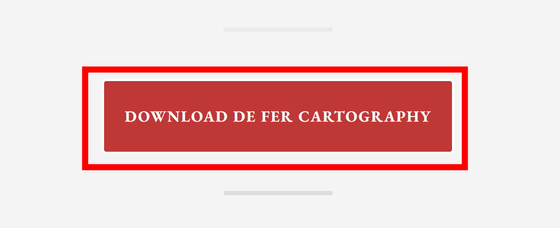
After unzipping the downloaded folder, double-click the brush file with the extension '.abr' to open it.

Select 'Adobe Photoshop' as the method to open the ABR file and click 'OK' to complete the brush installation.
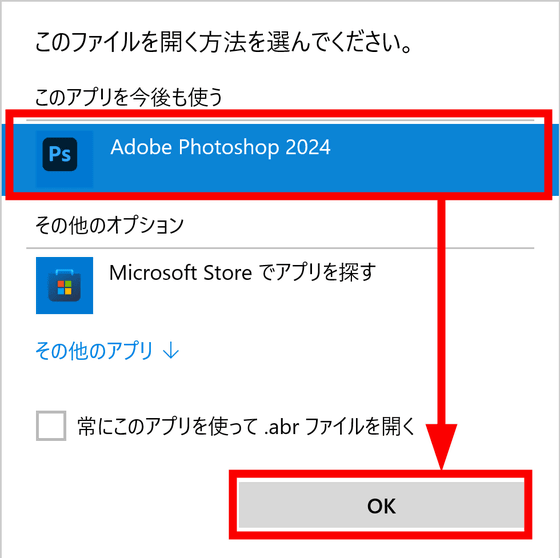
Let's actually use the installed brush. Since the brush is a material placed on the map, you will need to prepare the base part of the map yourself. This time I am using the demo map published by Fantasy Map Brushes. Once the map is open, select the Brush tool and choose a brush type from the tool menu.
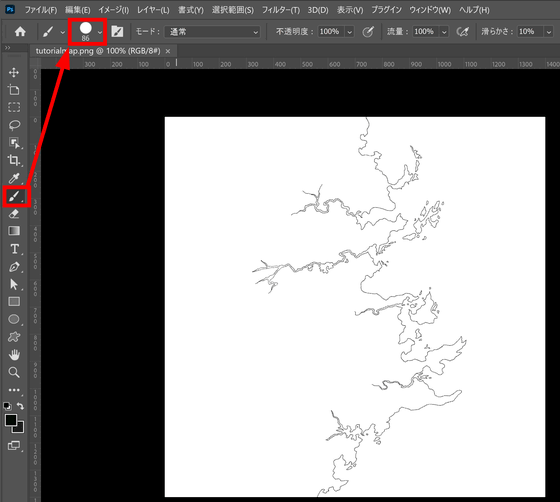
There is a folder called 'de Fer Cartography Brushes' in the brush list, so open it and click on the 'Landforms' category.
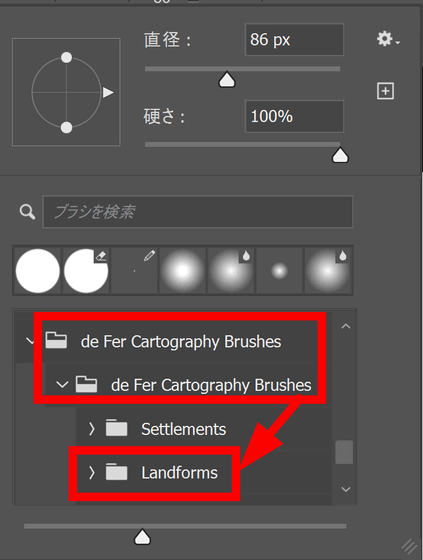
Select the “Mountain 001” brush from “Mountains”.
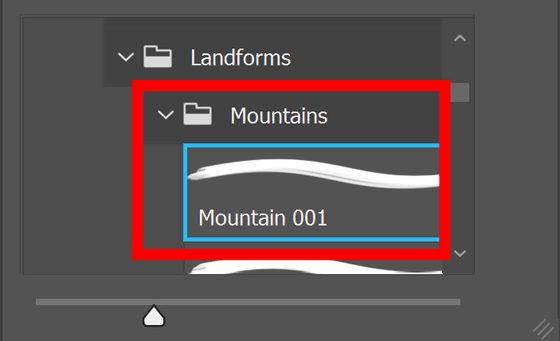
The brush shape now resembles a mountain illustration, and you can now place it on the map by clicking it.
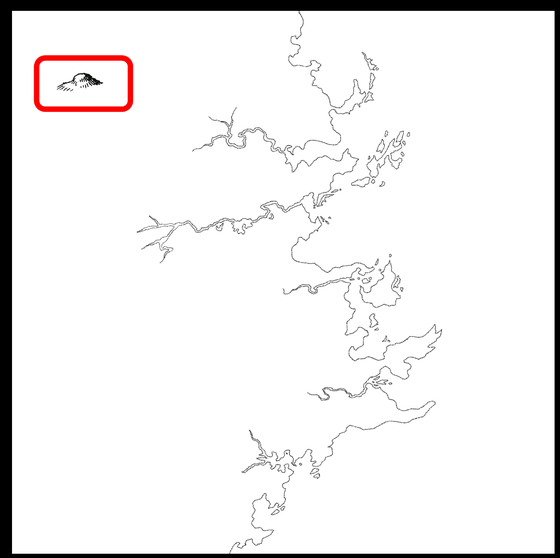
In addition to mountains, ``de Fer Cartography Brushes'' includes villages, forts, swamps, forests, animals, people, compasses, etc., and you can freely arrange them by changing their size and orientation. can do.
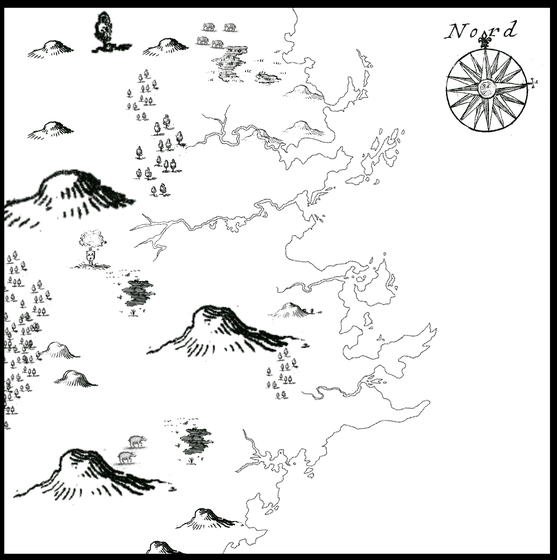
Fantasy Map Brushes has 30 types of brushes at the time of article creation.
・
An ukiyo-e style map set inspired by Moronobu Hishikawa , known as the father of ukiyo-e.

・
A brush based on Moronobu Hishikawa's `` Tokaido Bunk Ezu .''

・
A set of urban cartography brushes based on the 'Town Plan of New Haven' published by sculptor Thomas Kensett in the early 19th century.

・Grüninger Compass Wind Brush Set
A brush set mainly consisting of globe and wind illustrations. It was created based on a map used in a map published by German printer

・
A brush created by extracting elements from the 'Canton Map' depicting villages and places in Guangdong Province, China during the 17th century Qing Dynasty. Mountains and signs are drawn based on the aesthetics of Chinese calligraphy.

・
A brush set created from the ``Tide and Land Map of the Seas, Mountains, and Tides of Japan'' by Ryunobu Ishikawa, who is known for producing woodblock maps of Japan in the late 17th century.

・
A set of cartographic brushes based on early 18th century maps depicting the headwaters of the Mississippi River and the Great Lakes region. The artistic ability of French cartographer Nicolas de Fer is evident in the assets.

・
A brush based on the work 'Le Combat de Leuze ou de la Catoire' created by de Fer, which mapped battles between fortifications in Belgian cities and French cavalry. Features include brushes to help depict fantasy warfare, such as cavalry units and soldiers, explosion effects and battle icons.

・
A brush set based on the Paris countryside map created by de Fer.

・
A brush set of maps depicting China and Tibet in the 19th century, combining modern style and old terrain.

・
Unlike other brush sets, it is more of an auxiliary tool for quickly drawing coastlines rather than map elements.

・
A set extracted from a 1788 map of the Straits of Gibraltar by Johann Baptiste Hohmann, a prolific German geographer.

・
Based on a 1775 map of southern Portugal, it focuses on the hatching technique used to highlight contours on maps.

・
This brush set is based on the nautical chart of the Bay of Bengal in 1650, so it focuses on maritime matters such as shallow waters, rocky areas, and sounding traces.

・
A terrain set based on a detailed map of Austria created in 1697.

・
The symbols and terrain are based on Civitates orbis terrarum , a fairly important book in ancient cartography that features bird's-eye views of over 540 Renaissance cities.

・
A brush set taken from a book that reproduces detailed 17th century road maps.

・
A brush set that beautifully depicts the region of northwest Georgia, and while not as extensive as other sets, it contains brushes that help emphasize the uniqueness of each symbol.

・
A brush set focused on creating realistic maps of fantastical urban environments, extracted from a 17th century map of Paris.

・
A brush set focused on maps drawn in the Gothic style of the early 18th century.

・
Create stunning maps of the frontier wilderness with brushes created from a 1746 map of British America. This map also shows that swamps are essential when creating a map that captures the atmosphere of the time.

・
A brush set that extracts elements from a map that uniquely interprets a 17th century village. In addition to cities and towns, it includes churches, castles, fortresses, fountains, etc.

・
This brush set is based on a 17th century sacred tourist map, and includes many unique signs and decorations to add realism to your fantasy map.

・
This brush set is based on an 18th century map drawn from the detailed descriptions of naval officers on long expeditions to Louisiana, Texas, and Mexico.

・
This set is extracted from detailed illustrations of battles during the First Russo-Turkish War between Russia and Turkey in the 18th century, making it ideal for fantasy battle scenarios.

・
A brush set that lets you enjoy the antique atmosphere of the 17th century.

・
A set of small 18th century farms and ruins, solid mountains and hills.

・
Alexander's original brush set focuses on unique hills and mountains and personal customization.

・
A path-focused brush set designed for Adobe Illustrator that attempts to recreate the unique mountain hand-drawn style of 19th century hatching techniques.

・Coronelli: A Free 17th Century Compass Rose Brush Set
A set where you can get 6

On why he started the #NoBadMaps project: ``I strongly believe that creators should help other creators. We should enhance each other's strengths,' Alexander said. Therefore, the brush set published by Mr. Alexander is free and royalty-free, allowing commercial use.
Related Posts:
in Software, Web Service, Review, Design, Posted by log1e_dh

